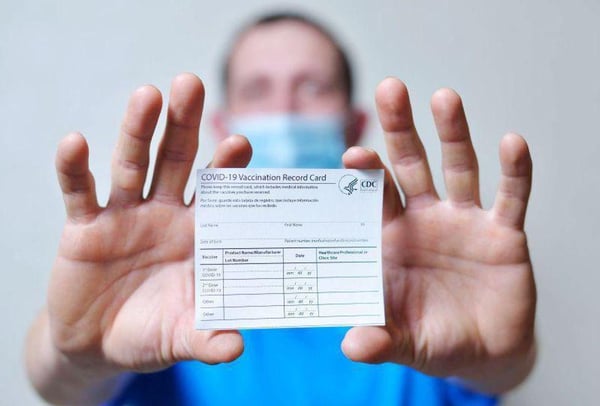Should You Get a COVID Booster Shot?

MONDAY, April 4, 2022 (HealthDay News) -- Now that many Americans can get not one, but two booster shots, how do you know if they are right for you?
Michigan Medicine-University of Michigan offers some advice based on updated findings and recommendations.
"Everyone over age 12 should get a [first] booster shot to help protect themselves not only from breakthrough infections, including the potential of a severe breakthrough COVID-19 infection, but also from the risk of long-haul COVID symptoms that can occur even if you only have a mild case of COVID," said Dr. Pamela Rockwell, a Michigan Medicine family physician and representative for the American Academy of Family Physicians on the CDC's Advisory Committee for Immunization Practices.
After approving a first booster dose late last year during the Omicron surge, the U.S. Food and Drug Administration this week authorized a second booster for all adults over 50 and immunocompromised people over age 12. The second booster can be given at least four months after the first booster.
Meanwhile, first boosters are still being offered for people ages 12 and up who had their second dose of a Pfizer vaccine more than five months ago, people ages 18 and up who had a second dose of Moderna vaccine five months ago, and those 18 and up who had a Johnson & Johnson vaccine more than two months ago.
Those who received the Johnson & Johnson vaccine should get a booster of either Pfizer or Moderna, according to the U.S. Centers for Disease Control and Prevention.
At the same time, immunocompromised children ages 5 to 11 are eligible for a third dose, considered part of their primary series.
According to Michigan Medicine, getting a booster is especially important for people over 65 and those with diabetes, obesity, heart disease, cancer and asthma. Adults and teens who haven’t had a first booster should do so after completing their primary vaccine series, while vulnerable children aged 5 and older and high-risk adults should also get that additional shot.
Vaccines are known to lose some of their effectiveness over time, which is why getting a booster is important. While more than 217 million people in the United States have their vaccines, only 97 million have received boosters, CDC data show.
Bringing everyone up to date on their COVID vaccines could provide protection in the event of another surge. Individuals who had their boosters prior to the Omicron wave were 300% less likely to get infected by the virus than those who were not vaccinated and 60% less likely than those who had vaccines but not a booster.
In breakthrough cases, those who were boosted had a 94% lower chance of being put on a ventilator or dying than those unvaccinated.
"Booster shots are not unique to COVID-19 vaccines. We are used to getting annual flu booster shots and boosters for Tdap [tetanus, diphtheria and pertussis] every 10 years to help our bodies maintain a high level of immunity against vaccine-preventable diseases," Rockwell noted in a Michigan Medicine news release.
"We are now seeing more and more breakthrough COVID-19 infections in fully immunized people. People are not as well protected with the vaccines as they were before the emergence of the Delta and Omicron variants," she said.
Still, "vaccination will help stop the spread of COVID-19 in our communities and help protect others around us who may be more vulnerable to COVID-19 disease and bring us closer to an end to this awful pandemic," Rockwell said.
More information
The U.S. COVID website has more on COVID-19.
SOURCE: Michigan Medicine-University of Michigan, news release, March 31, 2022
Related Posts
Los bebés de las madres que tuvieron COVID en el embarazo no sufren problemas de salud
MARTES, 21 de diciembre de 2021 (HealthDay News) -- Las mamás que tuvieron...
Lorazepam Has Negative Impact on Survival in Pancreatic Cancer
TUESDAY, Aug. 22, 2023 (HealthDay News) -- Lorazepam stimulates fibrosis and...
As Omicron Rages, How Important Are Case Counts Anymore?
WEDNESDAY, Jan. 12, 2022 (HealthDay News) -- The record-breaking numbers...
FDA Approval of New COVID Boosters Could Come by Friday
THURSDAY, Sept. 7, 2023 (HealthDay News) -- New COVID-19 booster shots could...
